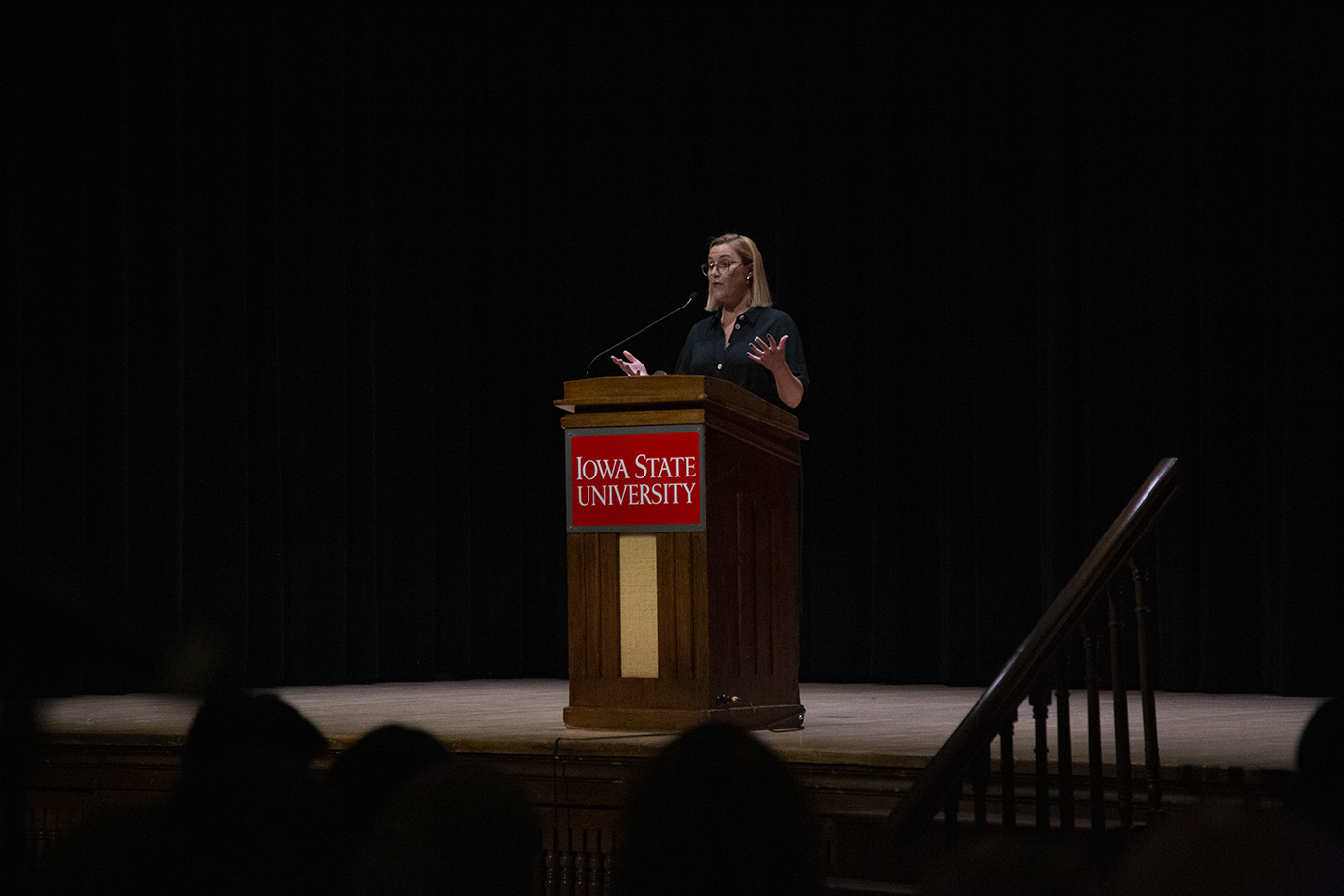Journalism and democracy: What I learned at the S.E. Cupp lecture
Author: perkinsk
Author: perkinsk
By Danielle Bauer, sophomore in journalism and mass communication
Journalism is essential to democracy. This is a point S.E. Cupp effectively hit home in her keynote speech, “Communications and Civility in Our Democracy,” presented during the Greenlee Summit on Sept. 5 in the Great Hall at the Iowa State University Memorial Union. However, instead of taking a heroic tone or describing the nobility of the media, she instead largely criticized them. While she raised criticisms, Cupp also emphasized the vitality of civility in the media.
Cupp began her speech by explaining the impact of hateful language and the attacking of opposing viewpoints. She described the way social media has created an eagerness to attack others for having ideas different from their own. It is crucial the media creates a space for civil discussion where people can find common ground. Journalists have the ability to humanize issues and allow people to consider different viewpoints. It is imperative that journalists fulfill this duty, especially in a time where people are more willing to shout than to listen.
Cupp also noted the media is: “…yelling only about our problems.” She explained this further by saying, despite all of the progress and general well-being of our nation, the media sometimes dwells on everything that’s going wrong. While it is certainly important to highlight the downfalls of our society, it is also beneficial to consider and speak about the many things that make it great. As stated in the reading, journalism provides a marketplace of ideas. If this marketplace discussion is only negative, people may become unnecessarily discouraged about society.

Cupp also explained many additional things journalists can improve upon, stating, “The media collectively needs to get better at doing our job.” She stressed the importance of distinguishing between reporting and opinion, as well as removing biases. When reporting, it is vital that journalists do not present their own opinions. It’s their duty to present the information in an accurate way, allowing civilians to form their own opinions. This aspect of removing one’s own opinion and biases is an essential part of a journalist’s role in democracy. As discussed in class, journalism acts as a mirror, informing people of issues and allowing them to see the facts. Without this mirror, citizens would not be able to make informed decisions, and self-governance would be unachievable.
In her speech, Cupp also discussed the ways in which modern-day politics are flawed. Cupp specifically focused on the damaging effects of tribalism and the erosion of civility. She expressed this idea when she said, “We’ll never get rid of our desire to be around our ideological own.” This idea of tribalism, or clinging to one’s own belief and the people who share it, is extremely detrimental to civility. While it is surely more comfortable to be around people who share our own ideas, comfortability does not create progress. Additionally, this tribalism leads to the perpetuation of extreme views and paints people from other groups as the enemy. It is crucial that the media displays middle ground and civility to end this divisiveness and create a united nation.
Hear a recording of S.E. Cupp’s Greenlee Summit keynote, “Communications and Civility in Our Democracy.”
Danielle Bauer is a journalism student at Iowa State University. She hopes that she can someday use journalism to protect the freedoms of our nation and write in an impactful way.